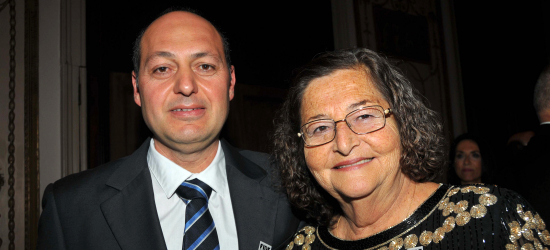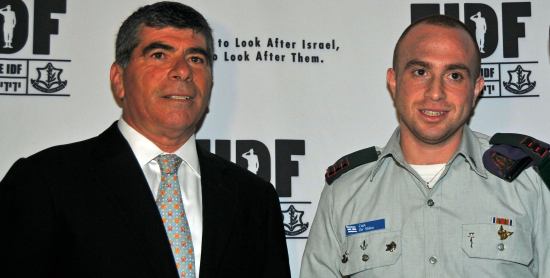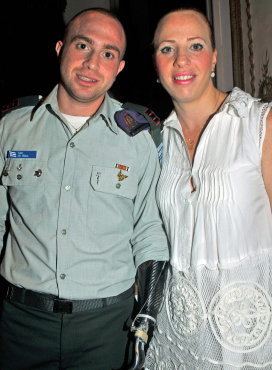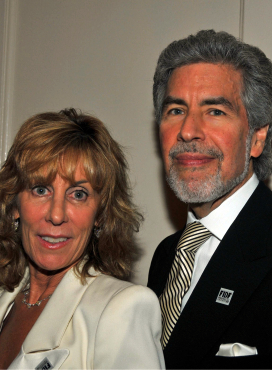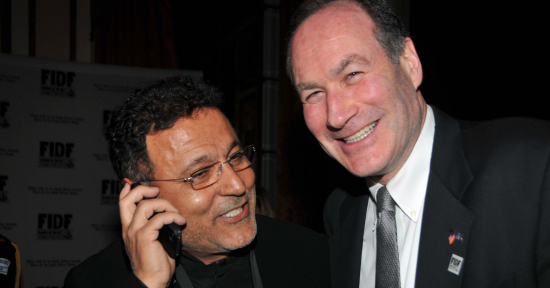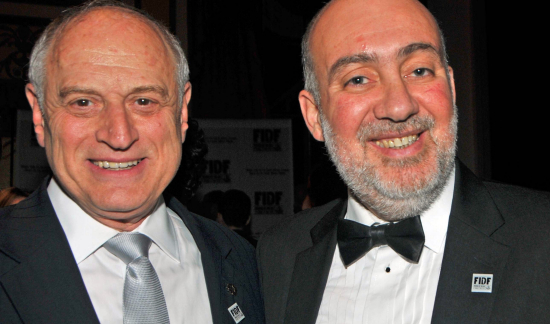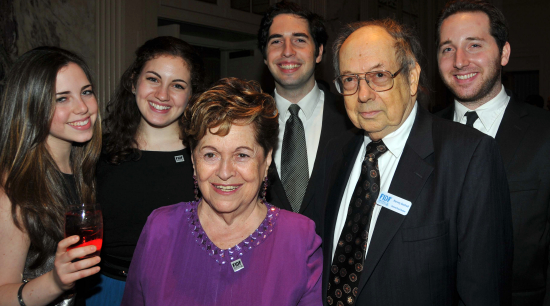|
|
|
| Official Magazine of the Next 15 Minutes | |
|
|
|
|
|
|
|
|
|||||||||||||||||||||||||||||||||||||||||||||||||||||||||||||||||||||||||||||||||||||||
|
This Mother Knew What Knock On Her Door Meant
Israelís two intelligence services, Mossad (external) and Shin Bet (internal), are universally known and respected. Whatís little known is the third component of the Israeli intelligence community, known as Aman (Directorate of Military Intelligence). As emcee of the Friends of the Israel Defense Forces (FIDF) national dinner in March at the Waldorf-Astoria in New York, Crowley gave us an insight how Israel tracks terrorists. She interviewed Maj. Gen. Aviv Kochavi, director of Aman, who spoke by satellite from his clandestine base in Jerusalem. Kochavi said Aman is Israelís biggest intelligence agency that for two years has been focusing on tactical and operational intelligence. "How does tactical intelligence work?" Crowley asked. "Itís complicated," Kochavi said. "But I will explain this if you will explain what sequester is." That jocular response got a rise from the 1400 guests in the Waldorf ballroom. Behind Kochavi was a roomful of soldiers busy at computers, their backs to the camera. "Our 30 analysts," he said, "collect each piece of information so we will be able to act against Hamas, the biggest terrorist organization in the Gaza Strip." Flanking Kochavi were two of his colleagues: the male head of the Palestinian communications analyst department, and a female Arabic specialist. The Arabic specialist said her team listens to conversations in Gaza. They pick up on plans to set off rockets even though the conversations are replete with code words which are easily interpreted by her analysts. "We listen to conversations that give a sense of what theyíre up to," she said. "Itís not about what they are saying but how they are saying it. If they sound nervous, we pay attention. We develop a sixth sense to understand what they are saying." Kochavi said that as a result of such intelligence Israel was able to launch drones that destroyed more than a thousand rocket sites in Gaza. Dinner chairman Arthur Stark introduced Nelly Barak, a native of Austria who made aliyah in 1956. She raised two sons and a daughter, and worked in Arad with immigrants from the former Soviet Union. Her youngest son, Hanan, enlisted in 2003, following his older brother and sister who had served in the armored corps. During Hananís officer training, his father Dudi went for several surgeries. Because of that Hanan found it hard to focus. "He knew he had done well enough to finish but not well enough to be a tank commander on the front lines," his mother said. With only two weeks left of his four-month course, Hanan requested to be allowed to drop out and take the course again later. "Why did you leave when no one asked you to?" his mother asked. "As an officer," he told her, "I am responsible for the lives of my soldiers. I donít want to take on that responsibility until I am ready and can give it my full and complete attention. Our soldiers deserve no less." A few months later his father was released from the hospital and Hanan went back and took the demanding course all over again from the beginning. At the end he took command of a tank unit in the 71st Battalion of the 188th Brigade. "He was so happy and we were so proud," his mother said. On Sunday morning, June 25, 2006, there was a knock on the door. "Itís open!" Nelly shouted. No one came in. She got up and opened the door. There stood three IDF soldiers. Nelly felt faint. "Itís enough just to see them in your doorway. They donít even have to say a word." "NO!" she yelled. "Youíre making a mistake. You have the wrong address!" And she slammed the door. She was thinking, "If I close the door they will just go away and it will be all right." She realized how irrational that sounded and let them in to do their painful duty. Earlier that morning, when her son was stationed near Kibbutz Kerem Shalom, three groups of terrorists crawled out from a tunnel under the Gaza fence. They saw a tank and attacked with rocket-propelled grenades. The tank went up in flames. Hanan and the three men under his command were forced to evacuate. Hanan and Pavel Slutzker were gunned down and killed. Roi Amitai was wounded. The fourth, Gilad Shalit, was dragged back into Gaza by the terrorists. Nelly realized how beloved her son was when numerous people came to her houseófriends, soldiers, the chief of staff, the president, "people we never dreamt of meeting." They all said the same thing: your son touched our lives, he went the extra step, he cared about us, he made a difference. Wiping away the tears on her cheeks Nelly continued, "No, there will never be another Hanan Barak. But there are many who are just like him. Look at all the soldiers in this ballroom, ordinary kids, just like my Hanan, and what they do is truly amazing. Thanks to them we are privileged to have a nation to call our own. And because of that, you and I and Jews around the world can feel proud and safe." At the dinner a wounded warrior, Capt. Ziv Shilon, stood with Lt. Gen. Gabi Ashkenazi, former IDF chief of general staff, as photographers snapped away. Zivís sister, Hilla, told me how he lost his two hands. As a member of the Givati Brigade, Ziv, 25, led a group of soldiers in October to clear the Gaza border near Kibbutz Kissufim. As he reached to open the border gate, a hidden bomb exploded. Both of his arms were torn. This evening, four months and ten operations in his right hand later, Ziv entered the ballroom to the cheers of a thousand people who sprang from their seats to salute a hero. Among those applauding were Maj. Gen. (Res.) Yitzhak Gershon, FIDF national director and CEO; Benny Shabtai, dinner chairman emeritus; Israeli Ambassador to UN Ron Prosor; New York Yankees president Randy Levine; Presidents Conference executive vice chairman Malcolm Hoenlein; Robert Benrimon, a paratrooper in the 1973 Yom Kippur War; Jeffrey Wiesenfeld, a principal at Bernstein Global Wealth Management; fashion designer Elie Tahari; and the noted criminal defense attorney Ben Brafman. The dinner raised $27 million for FIDF which, since 1981, has been supporting educational and recreational facilities for soldiers and their families. Among the heavy hitters was Marc Belzberg who announced, "I am donating one million dollars and my first-born son to the IDF in August." |
|||||||||||||||||||||||||||||||||||||||||||||||||||||||||||||||||||||||||||||||||||||||
|
|||||||||||||||||||||||||||||||||||||||||||||||||||||||||||||||||||||||||||||||||||||||
|
|||||||||||||||||||||||||||||||||||||||||||||||||||||||||||||||||||||||||||||||||||||||



